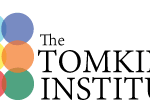The Neuroscience of Restorative Justice
(Excerpted and edited from the Tomkins Talk Forum)
The following link provides information about an exciting potential interface between ASP, Neuroscience, and Restorative Justice: https://www.ted.com/talks/
I find it very interesting that neuroimaging has shown poorly developed amygdalas in so-called psychopaths. There is a growing connection between a psychopath’s inability to develop empathy and an emerging theoretical work on how to help them with empathy. This talk explores how restorative practices could provide some part of that help.
To me this lends further power to Tomkins’ insights into the biology of emotion and affect as the primary motivator of script formation and behavior. At the same time we still know too little about the brain and probably are still in the infancy of understanding biological glitches in the affect system. It has long been my opinion that many “psychodynamic” or other psychological interpretations of maladaptive behaviors are woefully inadequate because they miss the fact that the brain is an extraordinarily complex organ that is easily glitched through genetic and environmental phenomena. Studies like the one presented in this Ted talk are a step in the right direction in expanding our knowledge and reminding us that what we don’t know far outweighs that which we do know.
Vernon Kelly and Marg Thorsborne recently released a book on this topic: The Psychology of Emotion in Restorative Practice.



